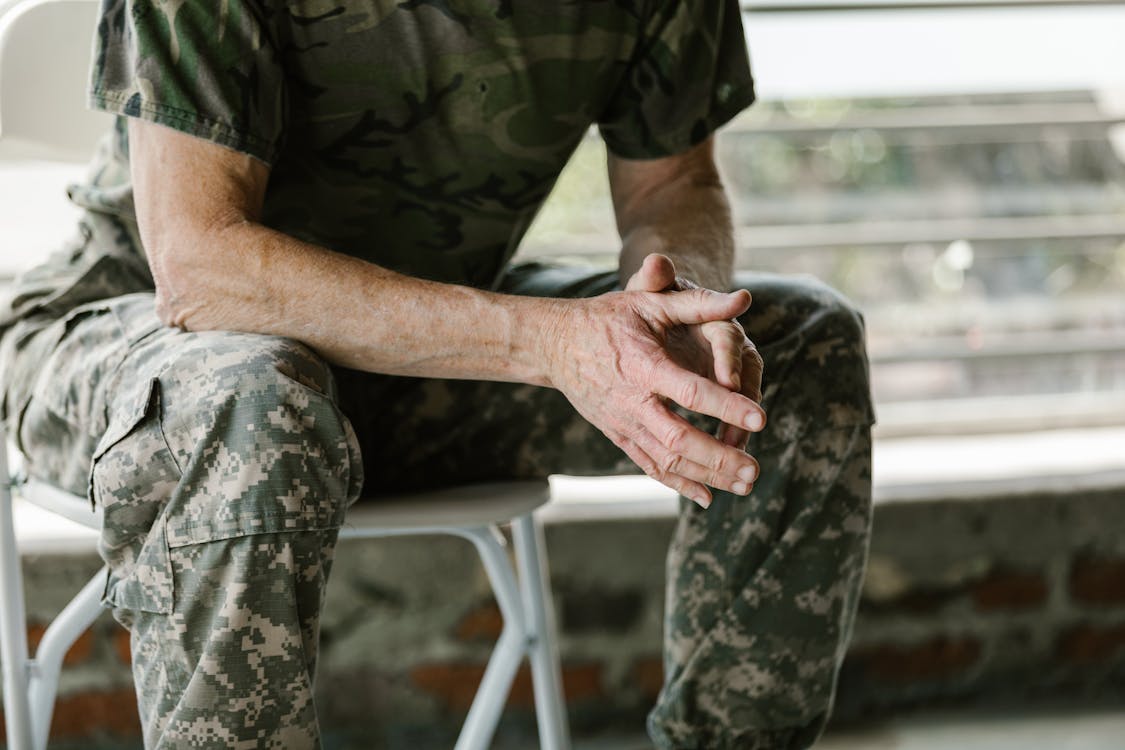
Substance abuse disorder (SUD) does not discriminate. It can affect even the strongest among us, including those serving in the military. More than one in ten military veterans have been diagnosed with substance use disorder.The military has a long history of drug use, and a concerning amount of stressors continue to make active duty personnel vulnerable to SUDs.

The most significant factor behind falling into the trap of drugs is the environment. You are at risk for mortal danger, especially if you are always in combat and have multiple deployments. In addition, it’s likely that you don't have contact outside of work during your deployment period. To top it off, you're gone indefinitely–no one knows if you'll be gone for a week or a few months. And these experiences are sources of trauma for those in the military.You have no choice but to be quick on your mind and your feet. This amount of pressure causes a lot of stress, and that stress often needs an outlet, thus leading to drugs or alcohol.
A huge part of military culture is community. You have to stick together to survive. You must be in tune with each other to ensure you're making the right move. You have to be loyal and trustworthy of one another because you only have each other to rely on. While this culture is beautiful and well-respected around the globe, this sense of community may also encourage substance use. The moment one of you starts, the chances of your entire group falling into the trap increase.

In the military, you're expected to be tough and invincible. But there's a concerning link between the military and mental health disorders. Due to all the stress and isolation that the military is exposed to, you're vulnerable to depression, anxiety, and post-traumatic stress disorder (PTSD).Unfortunately, having any of these also makes someone more susceptible to substance use disorder because it may seem like the easiest way to cope. Substance use may also seem like the most accessible form of addressing these mental health concerns, as there's a stigma against mental health challenges in the military.
Military personnel are at higher risk for developing prescription drug abuse than civilians. You're always exposed to injury, so it is only natural and of good measure to make sure these are available. That's why one of the most common drugs used in the military is pain relievers.But if you've been hospitalized or injured during combat multiple times, there's a risk of developing dependency. You might feel safer when under the influence of prescription drugs, so you continue to take them, even when you might not necessarily need them.
In the military, you have no choice but to be apart from your loved ones. It's difficult for everyone, but now you are always in danger and are constantly anxious about your family's well-being.You lose contact with a support system that means a lot to you, so it takes an emotional toll on you. There's no easy way to contact these people and no reassurance that you will see them soon. Naturally, you look for a coping mechanism instead of letting these thoughts affect you during combat.This coping mechanism may come in the form of drugs or alcohol, and that's how a substance abuse disorder can start.

Picture this: you're on a military base, stuck with the everyday stress of training and deployment. You're always injured, anxious, and sleep-deprived. The military officials know this, so they permit readily available prescription medications.Getting illegal substances in the military is not as easy, though. As you may already know, the military takes a hard stance against illegal substances.Regardless, the monitoring for prescription drugs is not as tight. And when you're desperate for an escape, what could have been initially helpful to you could turn unhealthy.
Substances like drugs and alcohol can easily harm your performance. For your own sake and your team members, the military has a zero-tolerance policy for illegal substances.Drug tests are routine, and there are serious consequences if you're caught. Depending on your rank, record, and circumstances, you could be penalized with non-judicial punishment, administrative discharge, or court-martial punishment like imprisonment.Testing positive for drugs also implies negative impacts on both your military and civil career because it's likely going to show on your security clearance.
Thankfully, all military branches have a substance abuse program to reinforce the zero-tolerance policy. This also means there are educational programs that talk about the risks of substance abuse and the alternative coping mechanisms that military personnel can take. If you're grappling with substance abuse, take comfort in knowing that there’s a variety of confidential counseling services, inpatient and outpatient rehabilitation programs, and resources that you may avail.There may be a stigma against substance use disorder in the military, but it is possible to create safe spaces for individuals like you to recover and safely serve in the military.

Substance use disorder can affect anyone in the world, and addressing it may be extremely difficult for military personnel. The isolation, danger, everyday stress, and availability of drugs could make the substances far more tempting than any other coping mechanism.You're not immune to temptation, and that's fine. It's understandable because of all of these factors, but it is not recommended, nor is it supposed to be encouraged and promoted. It is a problem that has to be addressed.That said, it's important to take action as early as possible when spotting symptoms of SUDs. Build a safe space, ask for help, recover, and stand back up.If you're struggling to call for help, contact Oregon Trail Recovery for safe and accessible addiction treatment in Oregon.